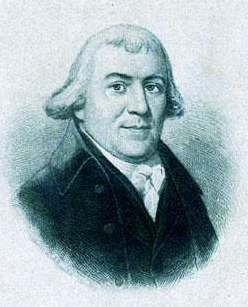The Legendary Words of Penelope Barker
Several recent books and websites quote Penelope Barker (shown here, courtesy of the Edenton Historical Commission), reputed organizer of the “Edenton Tea Party,” as making this statement about the event:
So I asked about the source of the quotation and did some digital digging. Two of the sources I looked at—a master’s thesis from Liberty University and the Visit Edenton site—cited as a source this page about Penelope Barker from the National Women’s History Museum, as viewed in the spring of 2013.
However, that page was revised by Debra Michals in 2015, and it now doesn’t include the quotation in question. (The Wayback Machine was no help in finding earlier versions of the same page. Incidentally, there is no physical National Women’s History Museum; the website is part of an effort to build one in Washington, D.C.)
As far as I can tell, the words attributed to Penelope Barker first appeared in the book Heroines of the American Revolution: America’s Founding Mothers, written by Diane Silcox-Jarrett, published by the Green Angel Press of Chapel Hill in 1998. (Several webpages render the name of the press as “Green Angle Press”; that error is a clue to recognizing which pages quote previous accounts rather than going back to the book itself.) Heroines of the American Revolution is the only title that shows up on an Amazon search for “Green Angel Press,” but Worldcat also lists a 1997 book on kinesiology.
Heroines of the American Revolution is an illustrated book for children. It was reprinted by Scholastic in 2000 for the school market. On her website Silcox-Jarrett describes herself as an author of “creative nonfiction books for young readers.” What might “creative nonfiction” mean in this context? In 1998 School Library Journal’s reviewer wrote about Heroines of the American Revolution:
The October 1774 event that’s come to be called the Edenton Tea Party was real. Penelope Barker signed her name to that gathering’s public statement as part of a continent-wide resistance to Parliament’s Coercive Acts. She may well have been the main organizer of the event, as tradition says. But we don’t know what she individually had to say about it.
Maybe it has only been men who have protested the king up to now. That only means we women have taken too long to let our voices be heard. We are signing our names to a document, not hiding ourselves behind costumes like the men in Boston did at their tea party. The British will know who we are.I saw those words quoted on Twitter, and they sounded anachronistic to me. The phrase “tea party” wasn’t applied to Boston’s destruction of the tea until the 1820s. The emphasis on “costumes” likewise came later than the 1770s. British colonists still considered themselves to be among “The British” in 1774—they were fighting for what they saw as traditional British rights. Lastly, “like the men in Boston did” should be “as the men in Boston did,” though I can’t claim the alternative grammar wasn’t used in the eighteenth century.
So I asked about the source of the quotation and did some digital digging. Two of the sources I looked at—a master’s thesis from Liberty University and the Visit Edenton site—cited as a source this page about Penelope Barker from the National Women’s History Museum, as viewed in the spring of 2013.
However, that page was revised by Debra Michals in 2015, and it now doesn’t include the quotation in question. (The Wayback Machine was no help in finding earlier versions of the same page. Incidentally, there is no physical National Women’s History Museum; the website is part of an effort to build one in Washington, D.C.)
As far as I can tell, the words attributed to Penelope Barker first appeared in the book Heroines of the American Revolution: America’s Founding Mothers, written by Diane Silcox-Jarrett, published by the Green Angel Press of Chapel Hill in 1998. (Several webpages render the name of the press as “Green Angle Press”; that error is a clue to recognizing which pages quote previous accounts rather than going back to the book itself.) Heroines of the American Revolution is the only title that shows up on an Amazon search for “Green Angel Press,” but Worldcat also lists a 1997 book on kinesiology.
Heroines of the American Revolution is an illustrated book for children. It was reprinted by Scholastic in 2000 for the school market. On her website Silcox-Jarrett describes herself as an author of “creative nonfiction books for young readers.” What might “creative nonfiction” mean in this context? In 1998 School Library Journal’s reviewer wrote about Heroines of the American Revolution:
Unfortunately, undocumented dialogue and feelings appear in almost every chapter. . . . An attractive offering—as long as children are aware that, despite its Dewey classification, this is not truly nonfiction.And it’s not just children who have been caught unaware. Lured by the promise of a rare political statement from an eighteenth-century American woman, perhaps fooled by the book’s North Carolina pedigree, some writers have accepted that Penelope Barker speech from Heroines of the American Revolution as authentic. But it’s “not truly nonfiction.”
The October 1774 event that’s come to be called the Edenton Tea Party was real. Penelope Barker signed her name to that gathering’s public statement as part of a continent-wide resistance to Parliament’s Coercive Acts. She may well have been the main organizer of the event, as tradition says. But we don’t know what she individually had to say about it.



